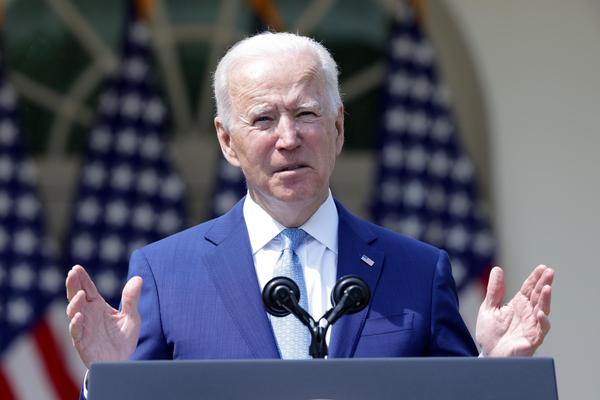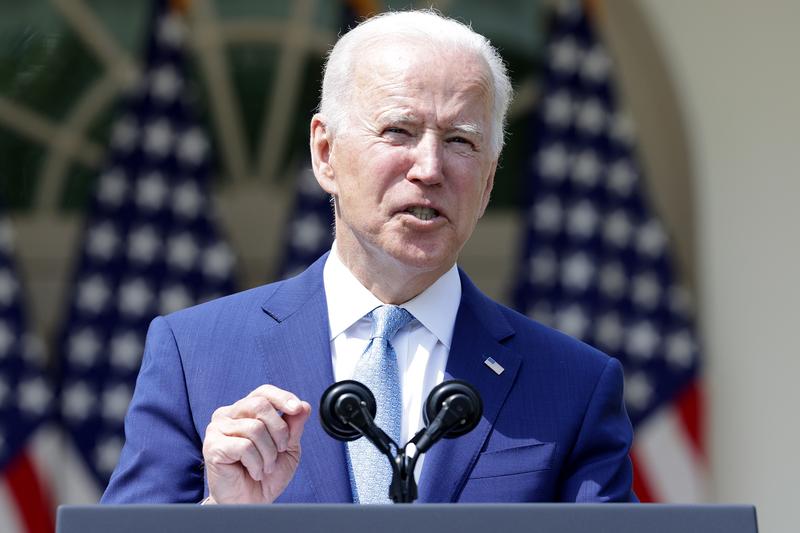
President Joe Biden campaigned on enacting tough new guns laws, and on Thursday signed a number of executive orders that purport to do just that.
Declaring "no amendment in the Constitution is absolute," Biden also argued his measures don't undermine the Second Amendment's guarantee of the right "to keep and bear arms."
Here are the six executive orders Biden signed and what their impact on the firearms industry likely will be.
Image source: Getty Images.
Homemade firearms, also called "ghost guns," are assembled at home from kits or via 3D printing and don't have serial numbers on them, which makes them difficult to trace. Biden has called these guns a "rising problem," and wants the Justice Department to issue new rules to prohibit them from proliferating.
Also referred to as "80% kits," since a buyer receives a collection of parts such as a barrel, trigger, and spring sets, which then need to be machined and assembled, these guns are not classified as firearms under federal law. Background checks are required only on firearms, which has long been determined to be a completed receiver, or frame of the firearm.
It is estimated consumers have bought hundreds of thousands of unfinished receivers over the past decade and their use in crime has markedly increased. Even so, Colorado State University-Pueblo's Center for the Study of Homeland Security says "the total number is still less than one percent of all gun crimes that are traced."
Braces provide stability for the user and allow a firearm to be fired one-handed. Pointing to the mass shooting in Boulder, Colorado, last month in which the shooter was wearing a stabilizing brace, Biden said the devices make a gun "more lethal." Because they allow shooters to use a gun one-handed, stabilizers are also popular with disabled veterans.

Subjecting firearms with stabilizing braces to the NFA would put them in the same category as machine guns, short-barreled rifles and shotguns, suppressors, and other destructive devices, such as bombs, grenades, and poison gas weapons. Buyers would have to pay a $200 tax and be approved by the Bureau of Alcohol, Tobacco, Firearms, and Explosives (BATFE), a process that currently takes almost a year to complete.
In order to allow states to confiscate firearms of anyone they believed was a danger to themselves or others, Biden wants the Justice Department to draft a model law states could enact, but he also called on Congress to pass a national "red flag" law.
Such laws are highly contentious because they are seen as violating due process rights. Families, the police, and courts are allowed to strip a person of their firearms without evidence or probable cause and require the owner to prove their innocence to get them back.
Biden advocates using community-based violence intervention programs to combat violent crime incidents, including spending $5 billion over eight years through the American Jobs Act to support programs that connect people with job training and job opportunities.
The Justice Department will issue an annual report for congress on how firearms are illegally trafficked. BATFE last issued one in 2000, and Biden says channels for trafficking in firearms have undoubtedly changed since then.
Chipman, a former special agent of the agency, currently serves as policy advisor to former Rep. Gabby Giffords, who was shot by a gunman in 2011 and subsequently founded a gun control organization. CNN has described Chipman as a "fierce advocate for gun control," which will undoubtedly make his confirmation hearing in the evenly divided Senate a difficult one.
While gun rights activists will likely bristle at many of these orders, and gun control advocates will think they don't go nearly enough, the executive actions are much more tame than what Biden campaigned on.
He didn't enact universal background checks or ban online gun sales. He didn't limit the number of guns that could be purchased or the size of magazines that could be used. Biden also didn't order a ban on military-looking semiautomatic rifles, nor did he appoint former Rep. Beto O'Rourke as his "gun czar" as was reported.
O'Rourke had inflamed passions during the presidential campaign by declaring, "Hell, yes, we are going to take your AR-15, your AK-47."
The executive orders suggest Biden holds to his past statements, but that there are limits to how far he can go in intruding upon the Second Amendment by issuing them.
Still, Biden did call on Congress to take up the thornier issues, such as closing the so-called gun show background check "loophole" in the law, which some argue is a misnomer, as well as repealing liability protections for gun manufacturers.
The Protection of Lawful Commerce in Arms Act says gun manufacturers like Glock, Smith & Wesson Brands ( SWBI 0.03% ), Sturm, Ruger ( RGR 1.35% ), and Taurus can't be held liable for crimes committed by criminals using a firearm. Just as an automaker can't be sued for crimes committed while a criminal is driving a car, so, too, gunmakers are protected.
Biden, though, says it is time firearms companies were sued, even if bankrupts them. That's what occurred with Remington Arms, which went under after it was sued because it used military style images and language in its marketing materials for one of its rifles that was used during the Sandy Hook school shooting in 2012.
With West Virginia's attorney general threatening to sue the Biden administration over the executive orders, and gun rights groups promising to join in, at least several of the orders could have problems in front of the Supreme Court.
The firearms industry may have dodged a bullet in that the actions didn't go further than they did, though it's likely they will face other fierce battle in Congress.